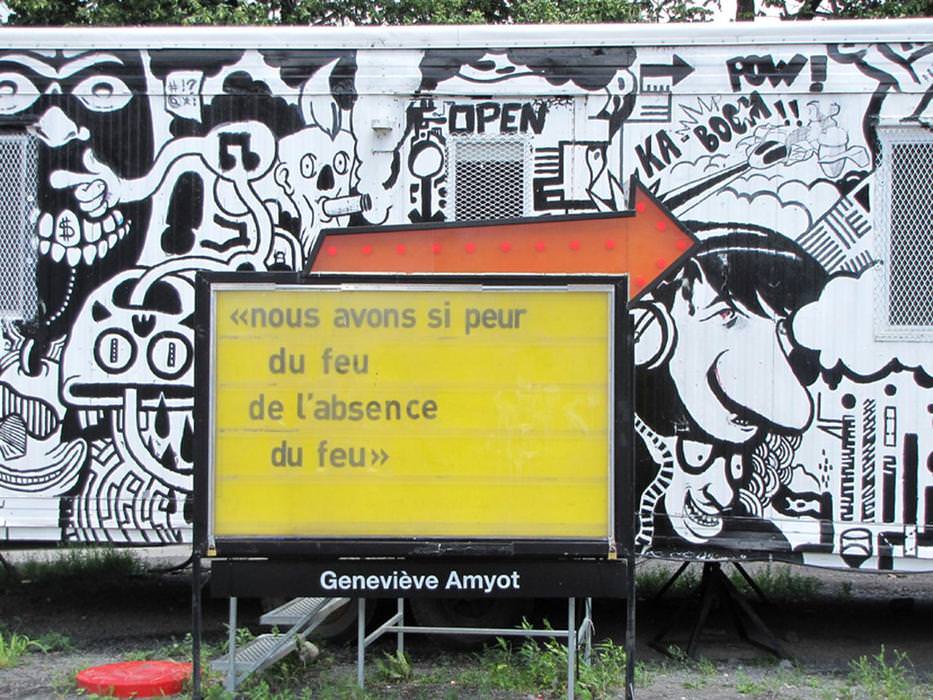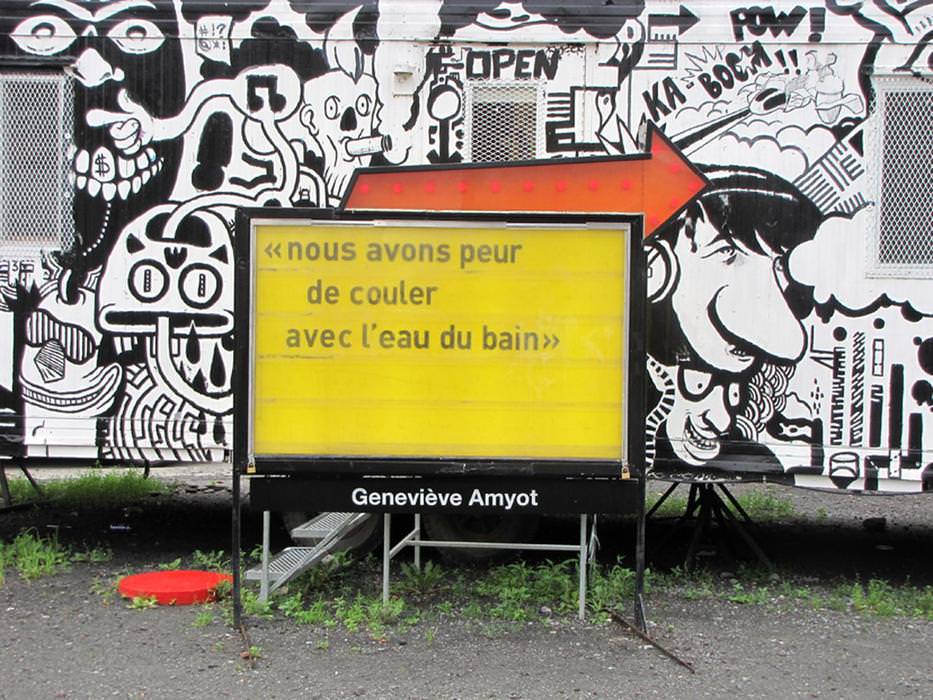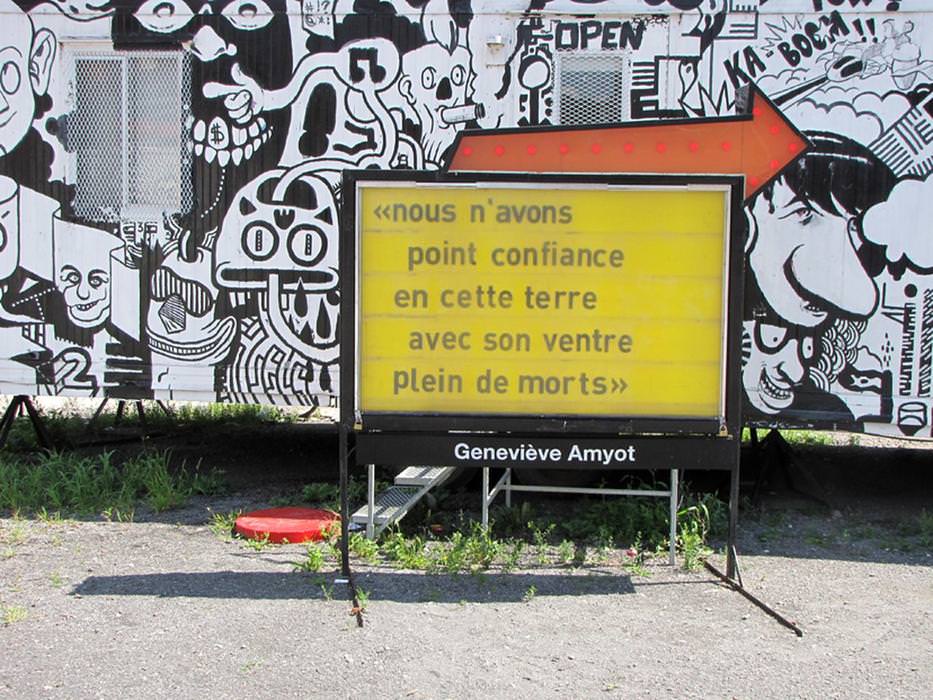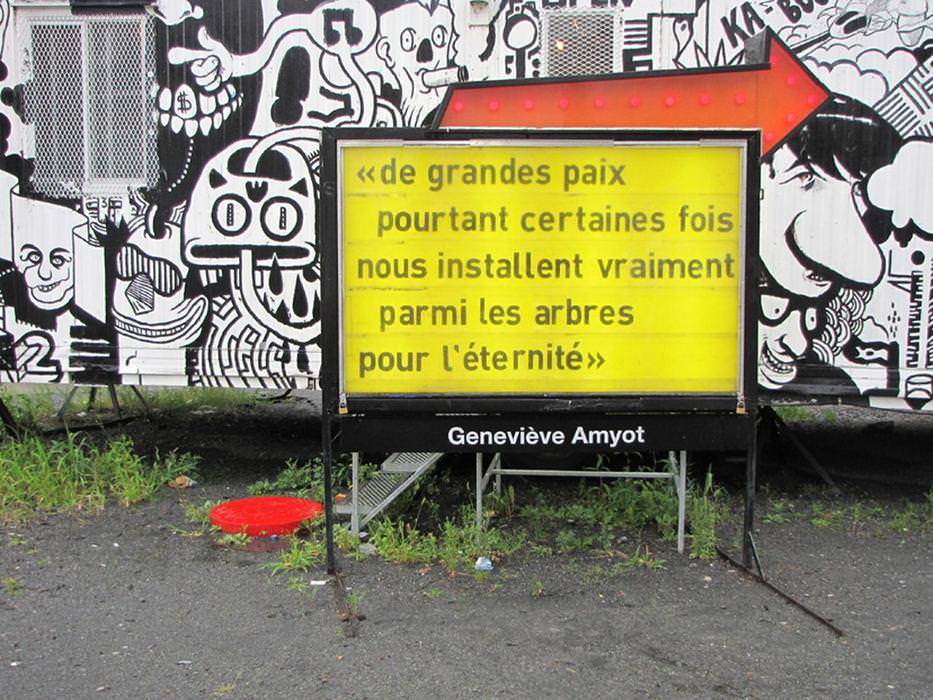Programming
Geneviève Amyot
Nous sommes beaucoup qui avons peur
Fear, especially its confrontation, is at the heart of Geneviève Amyot’s work and most of all in "Nous sommes beaucoup qui avons peur", published posthumous in 2003 by Éditions du Noroît.
View more
Fear, especially its confrontation, is at the heart of Geneviève Amyot’s work and most of all in "Nous sommes beaucoup qui avons peur", published posthumous in 20031 by Éditions du Noroît. In this text, the author reveals the valves of the fear – of her personal fears and our common fears – inviting us to a meeting with ourselves, without the possibility of escape, to confront the repressed fear that contains us all.
The strenght of these poems on fear stands on intransigence, the central value on the subject. Indeed, Amyot does not stay within the realm of surface fears - "Nous avons si peur du feu"; rather she turns them around, to show us the fear hidden behind fear: "de l’absence / du feu". It is thus our comfort with superficial fears that Amyot challenges and, in a true and timeless way, she exposes the core of fear's eternal power.
1 Amyot, Geneviève. La mort était extravagante followed by Nous sommes beaucoup qui avons peur. Montreal, Éditions du Noroît, 2003, 104 pages.
Geneviève Amyot (1945-200) is a Quebec author and poet. Together with a long career as an educator, she published novels trough VLB éditeurs: L’absent aigu (1976), Journal de l’année passée (1978), Petites fins du monde (1988) as well as collections of poetry with Éditions du Noroît: La mort était extravagante (1975), Dans la pitié des chairs (1982), Corps d’atelier (1990 - First recipient of the Prix de poésie - Terrasses Saint-Sulpice and Governor General's Award finalist), Je t’écrirai encore demain (1994).
Que vous ai-je raconté ? is a correspondence between Jean désy and Geneviève Amyot from 1990 to 2000 that reaveals Amyot's conceptual approach to writing.









